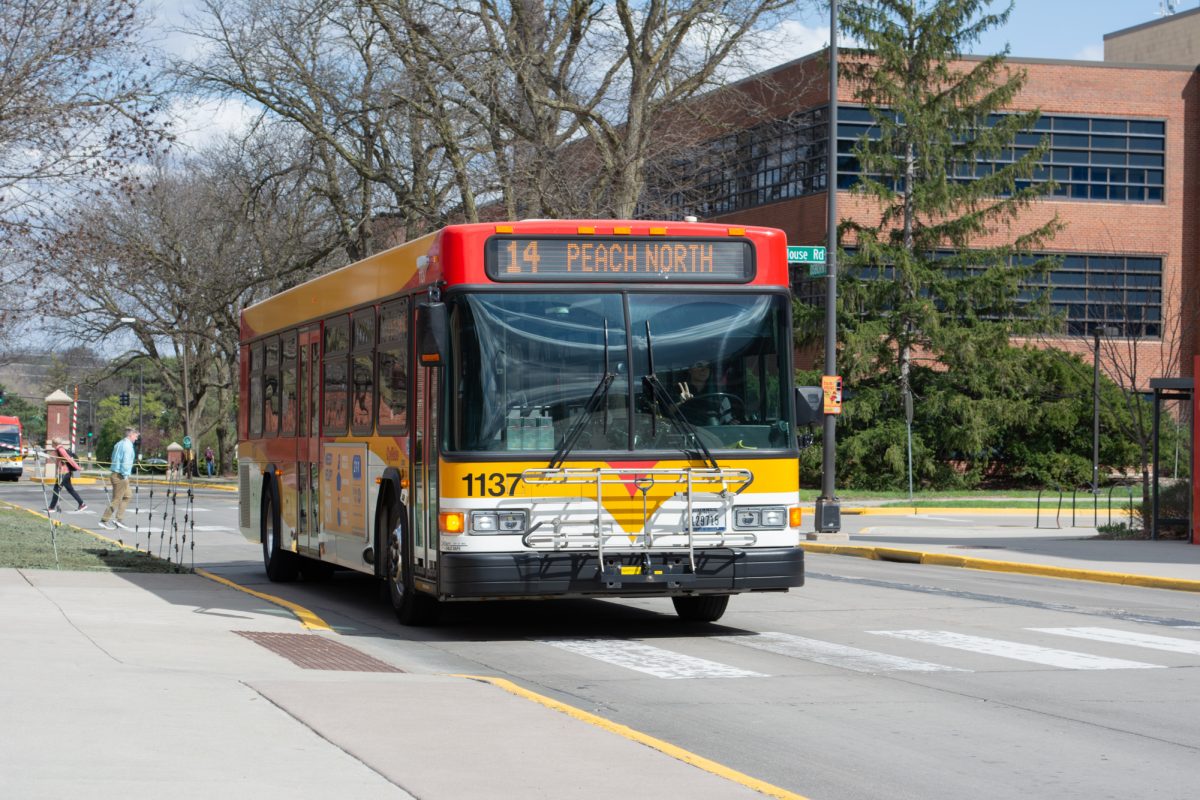Rinehart: College costs uncompetitive
Photo Illustration: David Derong/Iowa State Daily
Dorms offer students the space they need to study, sleep and socialize.
March 22, 2012
It has been said that an education is priceless, but is it really?
If you were asked why you were in college, you would probably give a response along the lines of “To get a good job after graduation.” That is usually the goal behind our schooling endeavors, which for most of us began when we first attended high school. We took college preparatory classes, threw ourselves into every extracurricular activity suitable to our interests, and went on those monotonous college visits to try and decipher fact from marketing techniques.
After all of the high school graduation speeches and goodbyes, we took our first steps into our new normal. We moved into rooms smaller than Kim Kardashian’s closet, and with a complete stranger, no less. We ventured our way across giant campuses, sat in lecture halls with hundreds of other strangers, and joined clubs consisting of pre-determined cliques. We did this all to gain a college degree.
After four years — or five or six — we begin to prepare ourselves to leave our purgatory and enter into the real world; but what are we taking with us when we go? A degree, great memories, a handful of close friends and, for many, an enormous amount of student debt amounting to a national average of $25,250.
It is the problem of our generation that we go to school as a sort of job security, we graduate, and alas, there are no jobs. Unemployment rates for the 20 to 24 year age group with bachelor’s degrees is at 7.7 percent. Too many people from our generation are finding themselves in the cold, hard world with a fresh, hot diploma in their hands, a sack full of debt and an empty job title.
Recently Iowa was ranked fourth in the country for defaulted student loan rates with a rate at 11.56 percent. Iowa is also third in the country for having the highest student debt with an average debt at $29, 598, ranking just behind Maine at $29,983 and New Hampshire at $31,048. Adding to these facts, Iowa State ranks in the top 10 public universities with the highest student debt in the country.
So, why does Iowa State have so much debt? First, Iowa State is known around the country for its engineering college; in fact the College of Engineering enrolls 23.2 percent of students. This naturally brings in many out of state tuition payers who are attracted to the potential opportunities the university offers. With absolutely no reciprocity available in the state of Iowa, out of state tuition can cost out of state students, about 23 percent of the undergraduate student body, about $20,000 a year.
If you are part of the 68 percent of the Iowa State student body that is from Iowa, your tuition bill will probably run around the price range of $8,000. This seems far more reasonable than the out of state tuition, but still adds up to a bill of $24,000 by the end of the traditional four year academic career.
The other major contributing factor to the high price of college is housing. Contrary to popular belief, this price is not affected by one’s residency status; it overcharges each student equally. A typical dorm room for two people on the Iowa State campus ranges an average from 140 square feet to 155 square feet. The average cost of these dorms is around $4,000 for an academic year, consisting of about seven months, excluding breaks. Counting in the fact that this price is doubled since two people typically share a room this comes to a total of $1,140 per month for one room. Not to mention meal plans are often a requirement to live in the dorms. The cost of convenience can be high.
Now adding up all these numbers into something significant will result in a grand total of around $27,000 for out of state costs per year, and about $15,000 per year for in state costs. Take that times four years and the numbers are not favorable.
With an average student debt of $30,000 for students graduating from Iowa institutions and national unemployment rates sitting at 8 percent, there is not much to look forward to after graduation. All we have is a picture-framed diploma and a resume. Now, the question remains, as to whether there is any worth in a college education.
This all depends on what a person wishes to achieve with an education. If a person wants to become wealthy, they should not go to college; that is what the stock market is for. If a person wants to gain an education, experiences and different cultural insights that could potentially lead to a dream career, then college is probably a good fit.
An education may be priceless, but a college degree most certainly is not. A college degree is expensive and time consuming. It can leave a student broke and facing a cold, harsh reality that is the “real world”, but it can also leave a student with a new understanding of that world they are about to embark into, so maybe the worth of a degree or an education all depends on your outlook.







